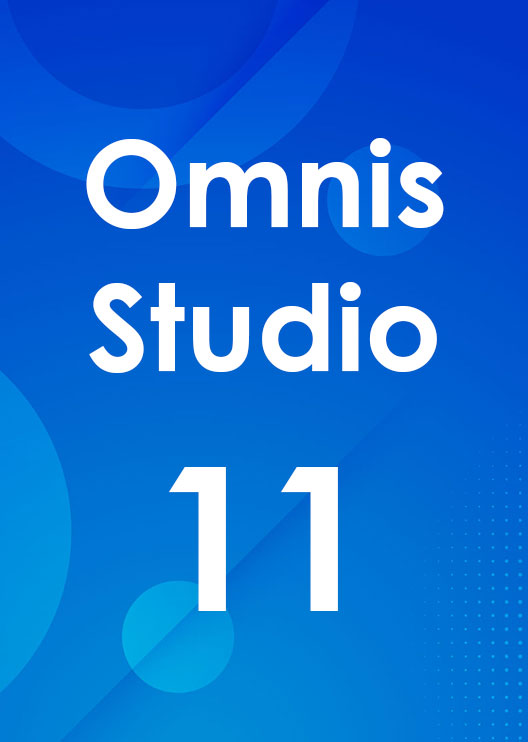Omnis Technical Note TNSQ0022 October 2008
Intelligent SQL Search
For Omnis Studio 3/4
By Andreas Pfeiffer
Omnis developers ask me quite often why in SQL you cannot fetch backwards - after all, it seems a reasonable question! In ANSI SQL, a function to browse backwards has not been implemented because with large amounts of data this would not make much sense. Imagine a user would have to browse through tens of thousands of records. It would be much more sensible to implement a search that displays a particular set of search results, and then allow the user to browse within the results to further refine the search results.
To provide such functionality, you must first enable the user to insert search criteria, for example, in an address details window. Using such a window, a user could enter "Miller" in a name field and "London" in a city field. When clicking on a search button, all Millers located in London would be listed. It is also important in this case that not only all instances of "Miller" are found, but also all instances of "Millerton", "Miller-Brown", etc, are listed, that is, all records that start with the string "Miller". The same is true of course for the city, therefore we want to find all instances of "Miller" located in London-Hampstead, London-Highgate etc., should be listed as well.
Let's assume you are using table classes, therefore it's easy to place a method in a table super class, to make sure it is available globally for all instances of any derived table classes. You could name the method $createWhereClauseFromCols.
Such a method would go through all columns of the current row variable and put a where clause together that our SQL server can understand. Using a parameter, we can fill a local variable which will either be an exact match or a search with Like:
If pExact
Calculate comparison as '='
Else
Calculate comparison as 'like'
End If
The following loop will go through all columns and you can access the appropriate column with the reference "colRef":
Set reference colRef to $cinst.$cols.$first()
While colRef
Set reference colRef to $cinst.$cols.$next(colRef)
End While
colRef().$name returns the name of the respective column. If we use this with a reference to the current row variable, we can also access the particular content: $cinst.[colRef().$name]
colRef.$coltype returns the type of a particular column. We can use this result, e.g. in a Switch statement, if we want to achieve different behaviour for different types of columns:
Switch colRef.$coltype
Case kCharacter
; do this
Case kDate
; do this
Case kInteger,kBoolean,kNumber
End Switch
In the case of Boolean or numeric values, a comparison with "Like" does not make much sense. Therefore, we can hard code the equals sign. It is a similar case with date values. (Please note the use of single and double quote marks.)
Case kInteger,kBoolean,kNumber,kDate
If $cinst.[colRef.$name]>0
Calculate whereClause as con(whereClause," and ",colRef().$name,"
= '",$cinst.[colRef.$name],"'")
End If
...
In the case of Character columns, it looks a little bit different:
Case kCharacter
Calculate whereClause as con(whereClause," and ",colRef().$name,"",comparison,"'",$cinst.[colRef.$name],pick(pExact,"%'","'"))
Such a method composes a string that we can use as a Where clause for the SQL request, taking into account the type for each column. Finally, the method has to return the string. If the local variable "whereClause" contains the string we will cut out the first "and" and replace it with a "where":
If len(whereClause)>0
Quit method con("where",mid(whereClause,5,len(whereClause)))
Else
Quit method ''
End If
Now we have a method that we can re-use many times to create a Where clause, but the question is, what is the best way to use it? The call on our row variable works as follows:
Do myResultList.$select(myRow.$createWhereClauseFromCols())
Do myResultList.$fetch(kFetchAll)
If myResultList.$linecount()=1
; load myRow
Else
; open selected window and pass over list
End if
The row variable myRow contains the sample data (in our example "Miller" and "London"). The search will be executed with "myResultList". If the search returns only one record, you can load the row variable directly by initiating another $select to load the details. If you have several matches in the result list, you could open a window which displays the data found.
Therefore you only have to implement an appropriate messaging system to make sure that the selected record will be loaded in the main window. To do this, include a method $load with the record ID as a parameter. This method reads the record into the row variable. The window that contains the result list only needs a reference of the main window to communicate with the main window.
Alternatively you could also use a $sendall(), as explained in my tech tip "Polymorphism in Omnis", see: TNOO0002

 Facebook
Facebook Github
Github Instagram
Instagram Linkedin
Linkedin Twitter
Twitter Youtube
Youtube Please logon or create a free account to download this file.
Please logon or create a free account to download this file.
